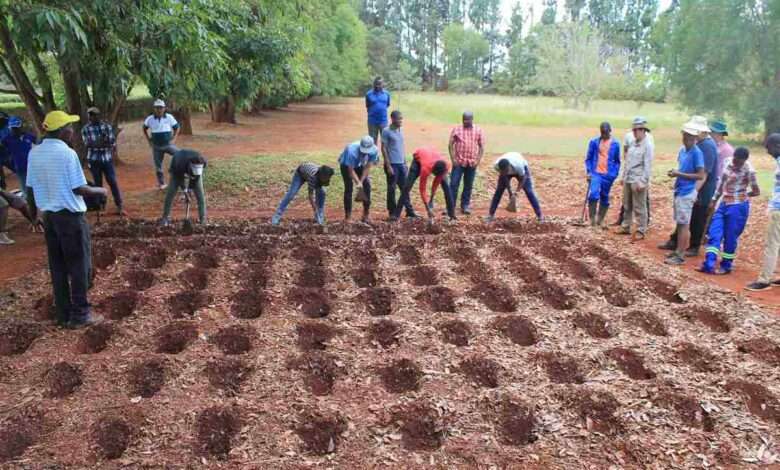GoZ Wants Pfumvudza Farmers to Dig More
Pfumvudza/Intwasa is a primitive land preparation method where farmers use hoes to dig holes on large tracts of land

GoZ Wants Pfumvudza Farmers to Dig More
It is mandatory for households to establish three permanent Pfumvudza/Intwasa plots each as a way of guaranteeing food security at both household and national level through the use of sustainable agricultural practices.
Pfumvudza/Intwasa is a primitive land preparation method where farmers use hoes to dig holes on large tracts of land. It is so labour intensive that villagers refer to as ‘Digger ufe' or ‘dig and die' alluding to how it strains the health of the workers. Weed management is one of its weaknesses as it keeps the farmers in the fields throughout the farming season. It is only suitable for subsistence farmers in loam to sandy soils.
Lands, Agriculture, Fisheries, Water and Rural Development permanent secretary Professor Obert Jiri yesterday urged farmers to maintain the position of the plots as permanent so that they get the incremental benefits of conservation agriculture or Pfumvudza/Intwasa.
“By now at least three plots must be ready for planting for the household and beneficiary,” said Prof Jiri.
He encouraged all farmers to prepare at least three plots if they were to receive inputs.
GoZ Wants Pfumvudza Farmers to Dig More
For household food security, the emphasis on permanent plots for Pfumvudza/Intwasa should be done on time with holes covered with mulch for effective moisture conservation, he explained.
“We need to climate-proof our agriculture practices at household level to ensure food security everywhere and every day. With renewed trust in Pfumvudza/Intwasa and irrigation development we should able to obtain cereal grain for the national food security.
“We must climate-proof our crop and livestock production through Pfumvudza/Intwasa and irrigation development meant for cereal production as well as pasture production for livestock. This must remain our best foot forward as we transform Zimbabwe’s agricultural sector,” he explained.

























